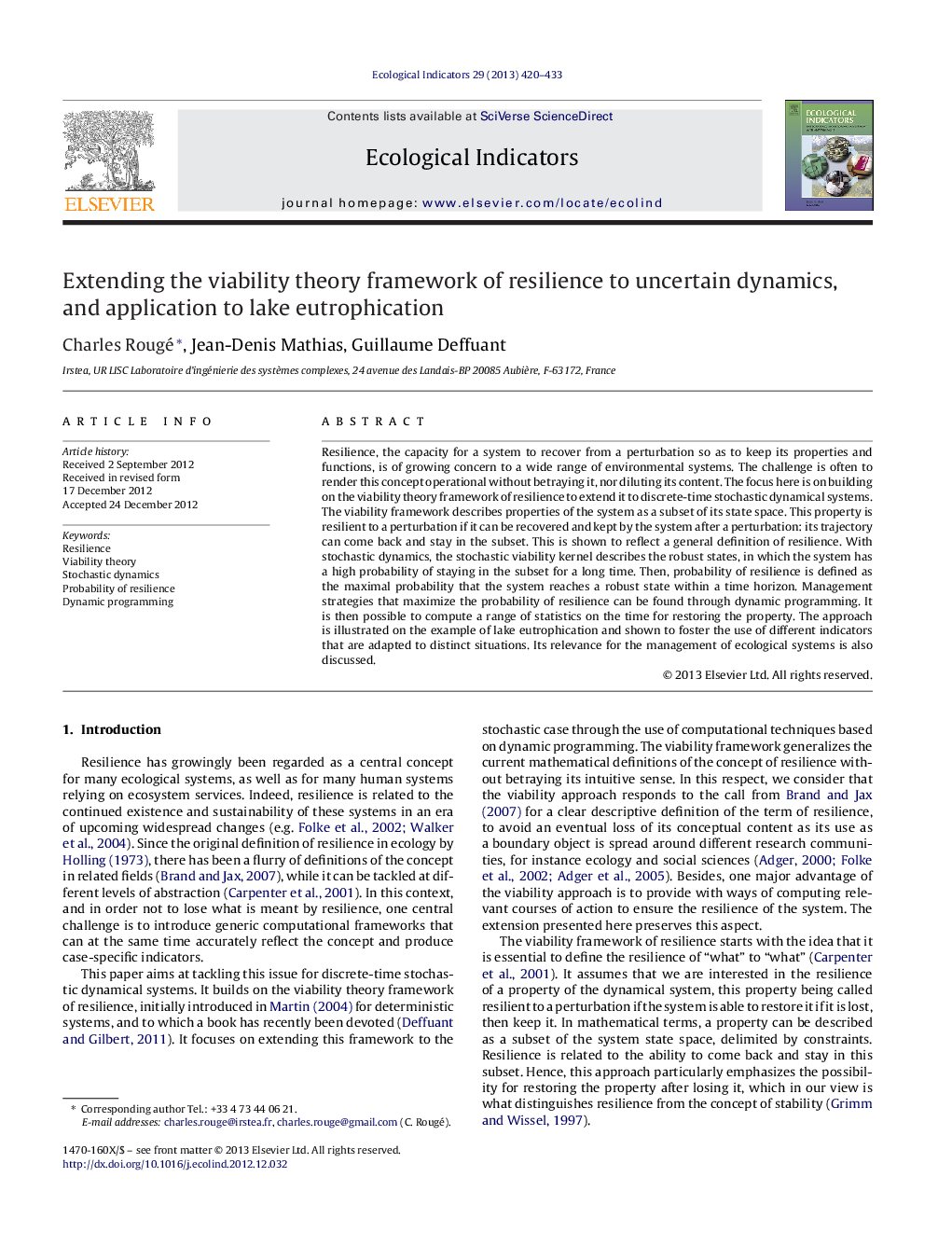| Article ID | Journal | Published Year | Pages | File Type |
|---|---|---|---|---|
| 4373498 | Ecological Indicators | 2013 | 14 Pages |
Resilience, the capacity for a system to recover from a perturbation so as to keep its properties and functions, is of growing concern to a wide range of environmental systems. The challenge is often to render this concept operational without betraying it, nor diluting its content. The focus here is on building on the viability theory framework of resilience to extend it to discrete-time stochastic dynamical systems. The viability framework describes properties of the system as a subset of its state space. This property is resilient to a perturbation if it can be recovered and kept by the system after a perturbation: its trajectory can come back and stay in the subset. This is shown to reflect a general definition of resilience. With stochastic dynamics, the stochastic viability kernel describes the robust states, in which the system has a high probability of staying in the subset for a long time. Then, probability of resilience is defined as the maximal probability that the system reaches a robust state within a time horizon. Management strategies that maximize the probability of resilience can be found through dynamic programming. It is then possible to compute a range of statistics on the time for restoring the property. The approach is illustrated on the example of lake eutrophication and shown to foster the use of different indicators that are adapted to distinct situations. Its relevance for the management of ecological systems is also discussed.
► A framework for the resilience of any stochastic dynamical system is presented. ► This is an extension of the deterministic viability-based framework of resilience. ► We distinguish strong and rare perturbations from weaker usual uncertainty. ► Resilience is recovering and keeping a property after a strong perturbation. ► Dynamic programming allows for maximizing the probability of being resilient.
